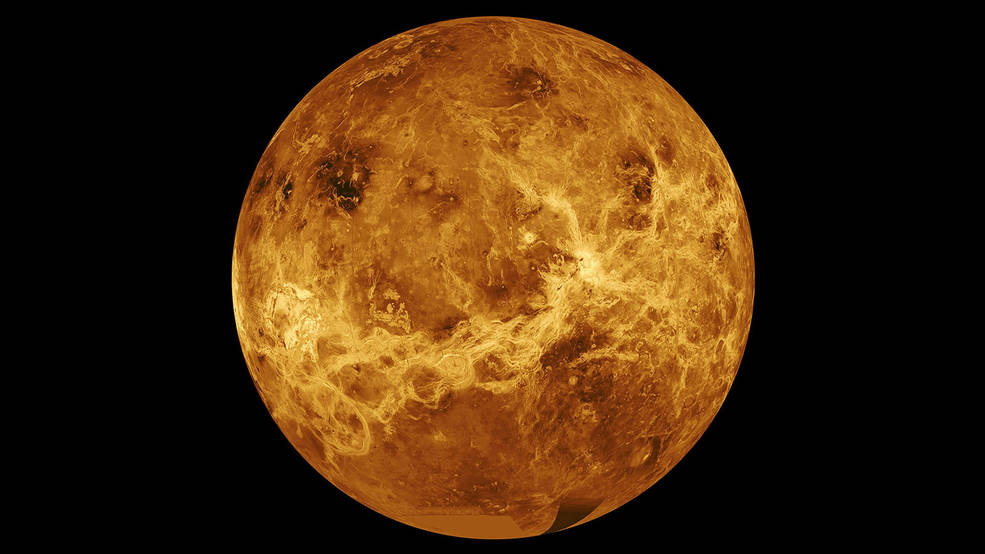Astronauts should visit ‘hellish’ Venus before going to Mars, experts suggest
Venus’ atmosphere could be home to microbial extraterrestrial life

Venus is a better target for a crewed mission to another planet than Mars, experts have suggested.
While Mars might have the most attention, it is not the closest planet – and passing by it could provide vital scientific information, in addition to reducing the travel time to Mars.
“Venus gets a bad rap because it’s got such a difficult surface environment,” Dr Noam Izenberg of the Johns Hopkins University applied physics laboratory told The Guardian.
“The current Nasa paradigm is moon-to-Mars. We’re trying to make the case for Venus as an additional target on that pathway.”
While Venus is close to the Sun than Mars – and therefore in the wrong direction for a journey to the Red Planet – travelling around it could create a slingshot effect known as a gravity assist that could cut travel time significantly.
“You’d be learning about how people work in deep space, without committing yourself to a full Mars mission,” he said. “And it’s not just going out into the middle of nowhere – it would have a bit of cachet as you’d be visiting another planet for the first time.”
Unfortunately, astronauts cannot walk on Venus’ surface – the planet itself is hot enough that it cannot sustain any form of life at a scorching 475 degrees Celsius.
However, there is a possibility that Venus could be home to alien life. The presence of ammonia - a common left-over waste from aquatic organisms – has led to suggestions that there could be extraterrestrial microbes in the planet’s clouds.
A hypothetical mission to the planet could therefore deploy rovers, drones, and balloons to investigate further. “There is every reason to believe that Venus will be an endless wonderland of beguiling and mysterious vistas and formations,” a report, authored by Dr Izenberg and Nasa chief economist, Alexander Macdonald, says.
However, other scientists have been skeptical of this claim. If there were extraterrestrial life on a planet, it would probably leave behind evidence in its atmosphere, as it eats and lives – but no such evidence was found on Venus, Cambridge’s Department of Earth Sciences suggests.
“It’s really not a nice place to go. It’s a hellish environment and the thermal challenges for a human mission would be quite considerable,” Professor Andrew Coates, a space scientist at Univesity College London, told The Guardian.
A probe, launched by Rocket Lab, will be sent in 2023 to investigate the Venus’ atmosphere.
“The overarching science goals are the search for evidence of life or habitability in the Venusian clouds. There are two specific science objectives: to search for the presence of organic molecules within cloud-layer particles and to determine the shape and indices of refraction (a proxy for composition) of the ... cloud particles” Massachusetts Institute of Technology researchers, who are being sponsored by Rocket Lab, write in their study.
Join our commenting forum
Join thought-provoking conversations, follow other Independent readers and see their replies
Comments


Bookmark popover
Removed from bookmarks